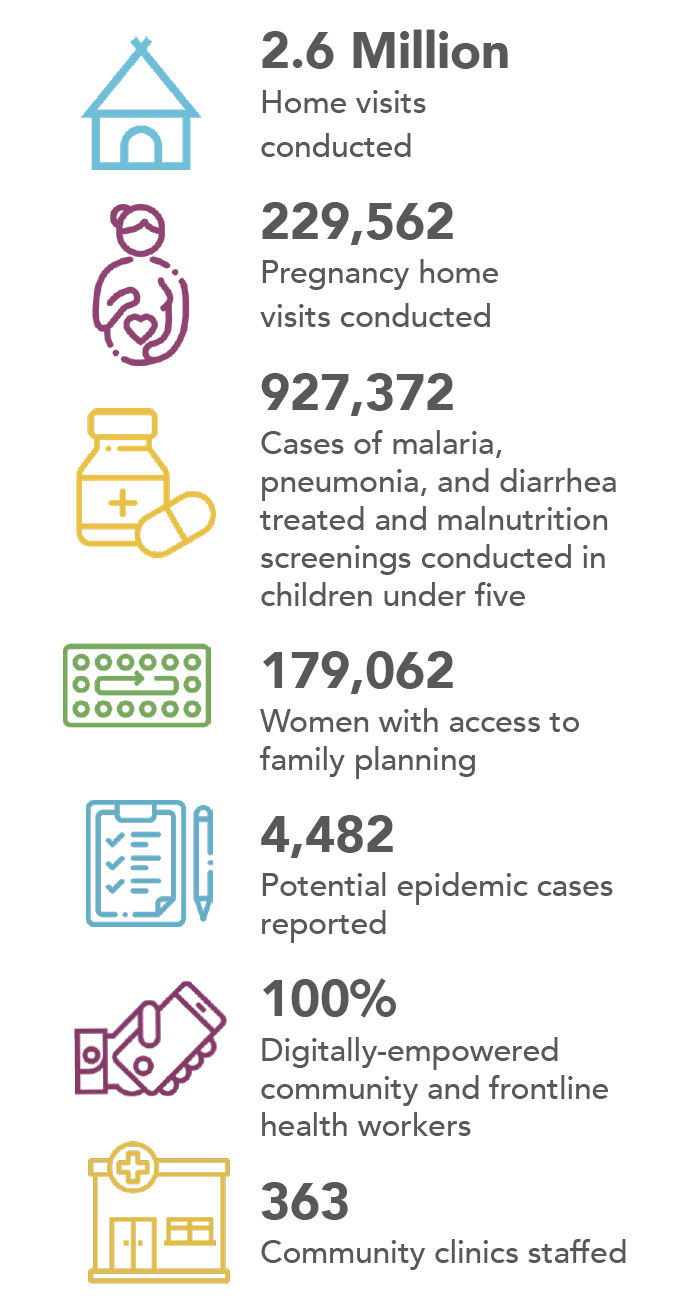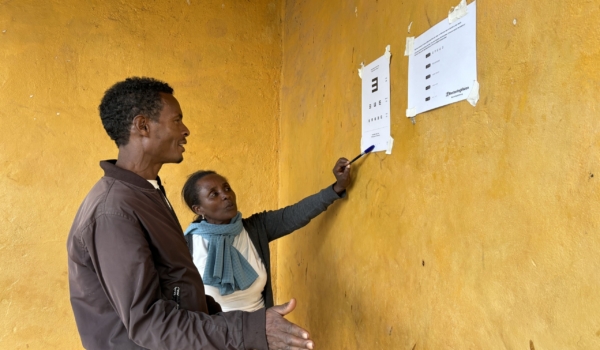 Since 2016, more than 3,600 community and frontline health workers have been trained and deployed to provide life-saving care to those living in rural and remote communities through the National Community Health Assistant Program, cumulatively conducting over 2.6 million home visits. With over 80% of the workforce now deployed, the Government of Liberia is focused on strengthening the quality of the program, particularly through enhanced supervision and training. As of December 31, 2019, the program has generated the results outlined to the right.
Since 2016, more than 3,600 community and frontline health workers have been trained and deployed to provide life-saving care to those living in rural and remote communities through the National Community Health Assistant Program, cumulatively conducting over 2.6 million home visits. With over 80% of the workforce now deployed, the Government of Liberia is focused on strengthening the quality of the program, particularly through enhanced supervision and training. As of December 31, 2019, the program has generated the results outlined to the right.
Survey Results Inform Nutrition Service Delivery
As Liberia’s National Community Health Assistant Program approaches full scale, Last Mile Health is supporting the Ministry of Health to deepen the quality of service delivery in programmatic areas, such as nutrition, to ensure a healthy future for rural communities. Nationally, nearly one-third of children under the age of five suffer from chronic malnutrition and almost half a million are anaemic. In August 2019, the Rivercess County Health Team and Last Mile Health conducted surveys in local food markets, focus group discussions, and an analysis of barriers to achieving optimal nutrition to better inform service delivery by community and frontline health workers. The results indicate that communities in Rivercess County are affected by limited seasonal availability of food, which is compounded by high cost and transportation constraints.
To address these barriers in Rivercess County—a site of innovation for the national program—the County Health Team and Last Mile Health will form cross-sector partnerships to address gaps in water, sanitation, hygiene, and food security. In addition, community and frontline health workers will augment healthcare service provision with community-based nutrition education, including the promotion of diversified protein sources such as small livestock and home-grown produce as well as an emphasis on breastfeeding practices. Through these efforts, community and frontline health workers aim to improve nutritional outcomes, particularly for women and children, so that they are more likely to live healthy, productive lives.




